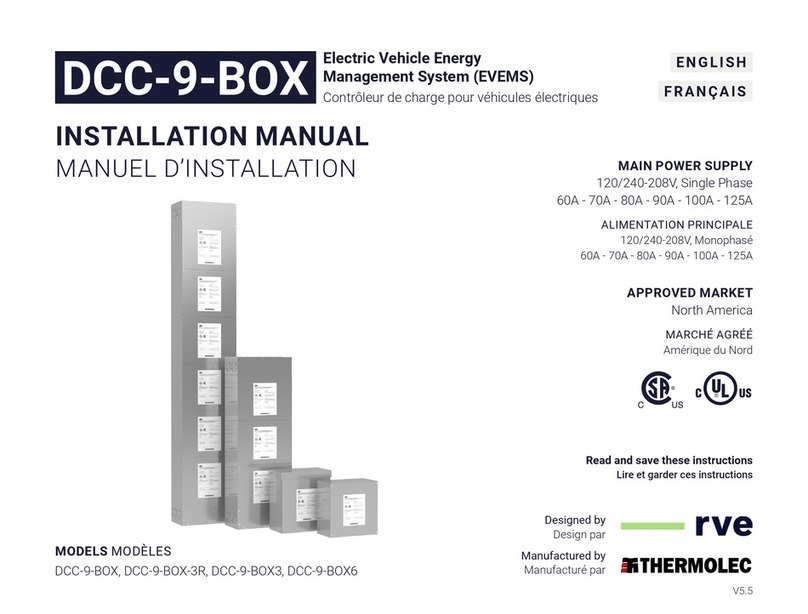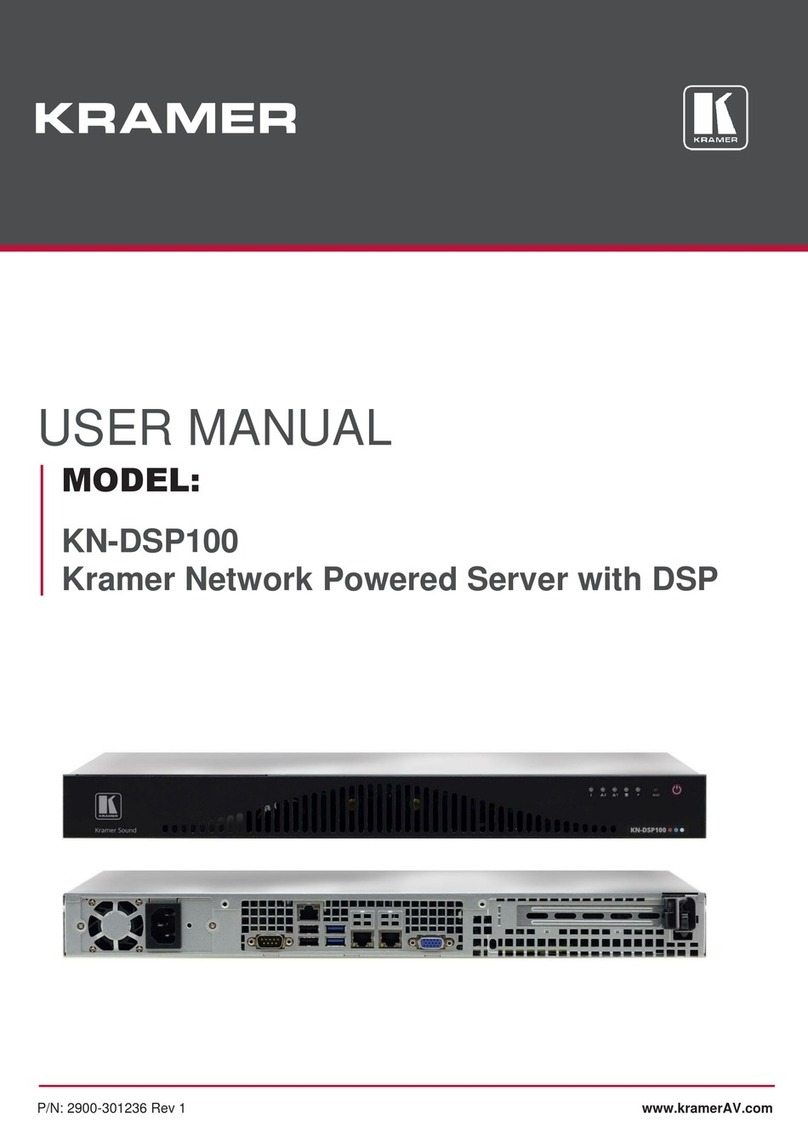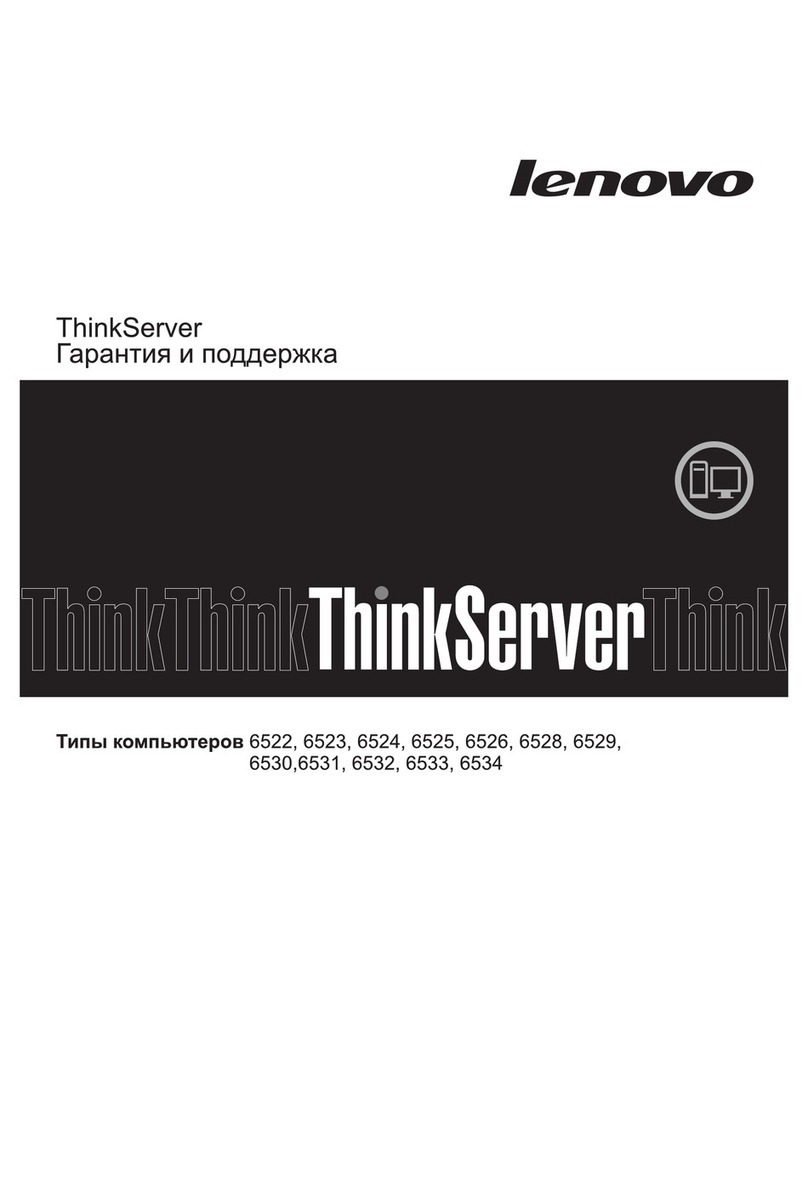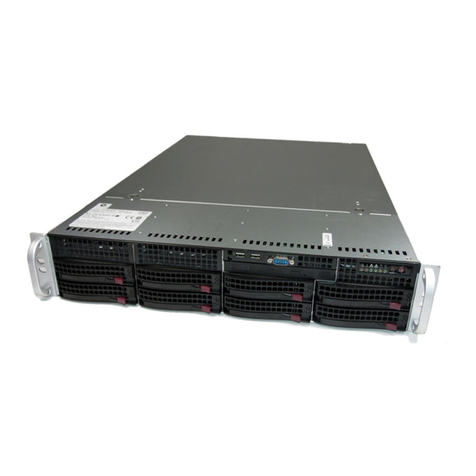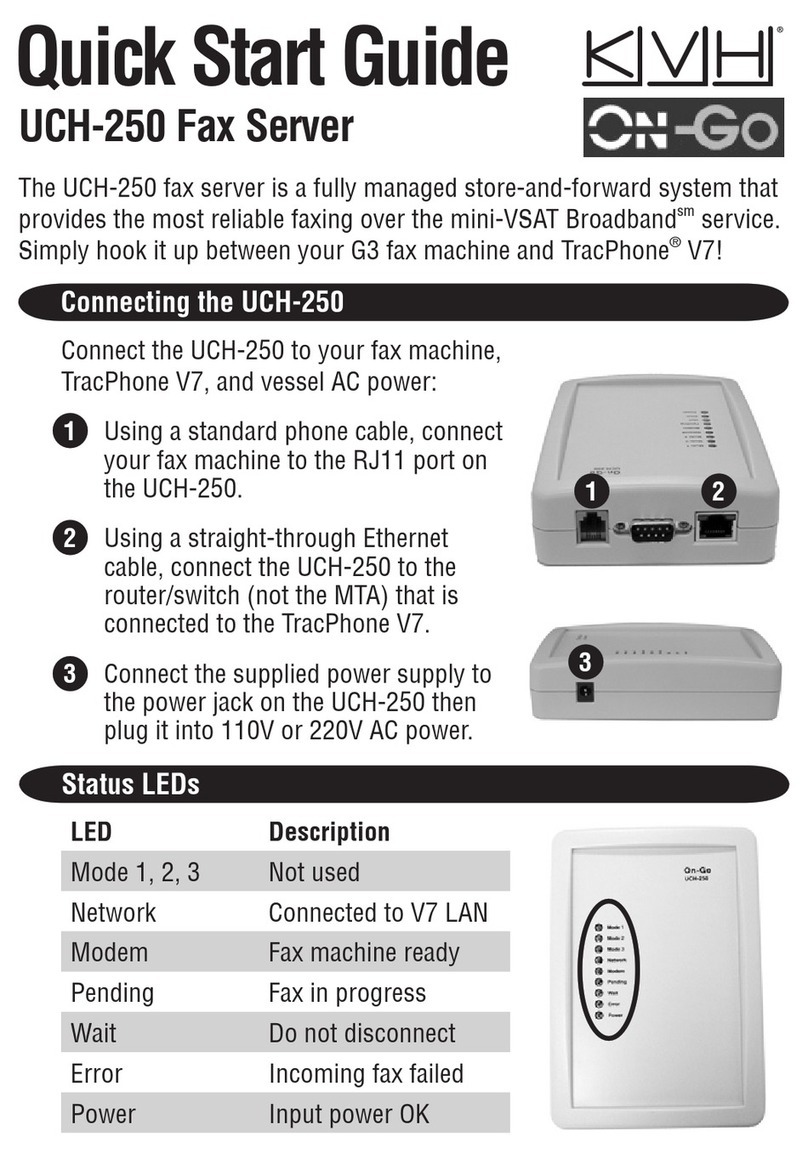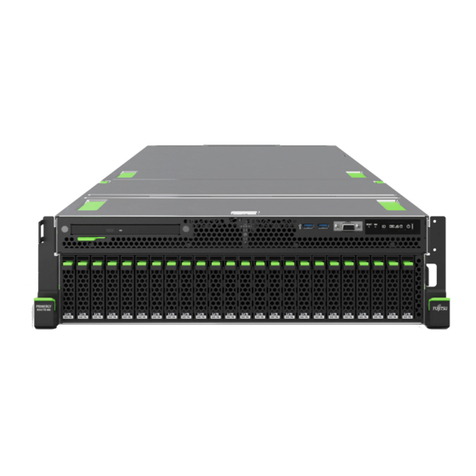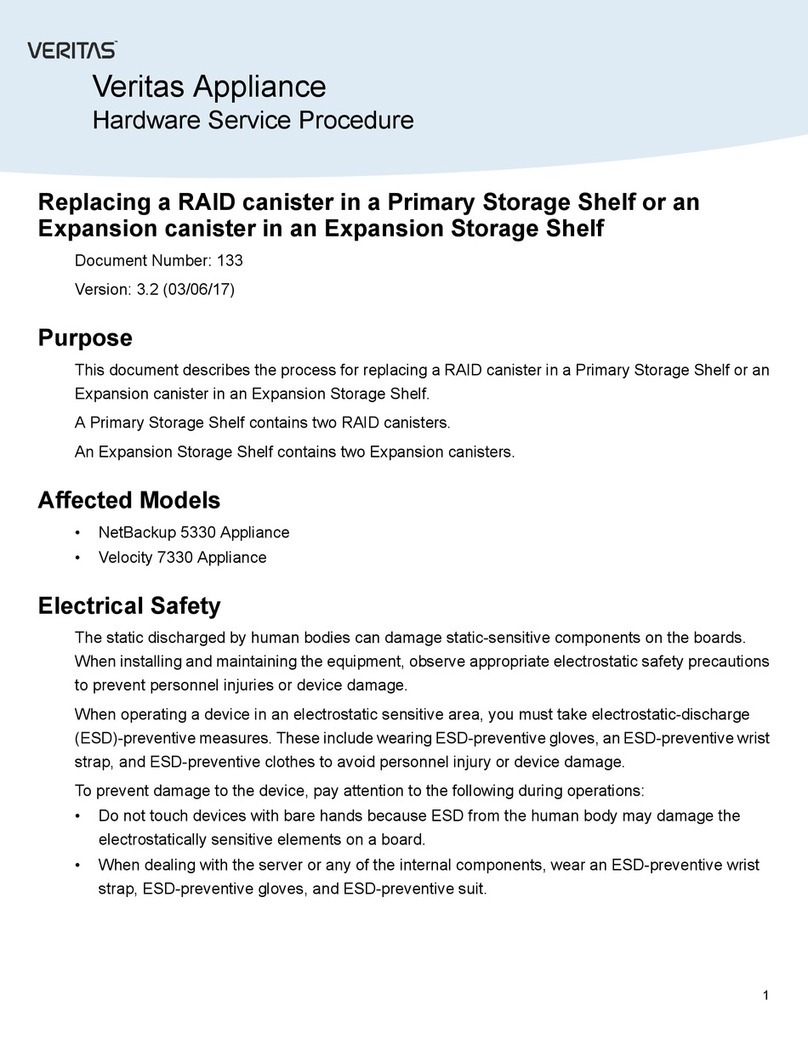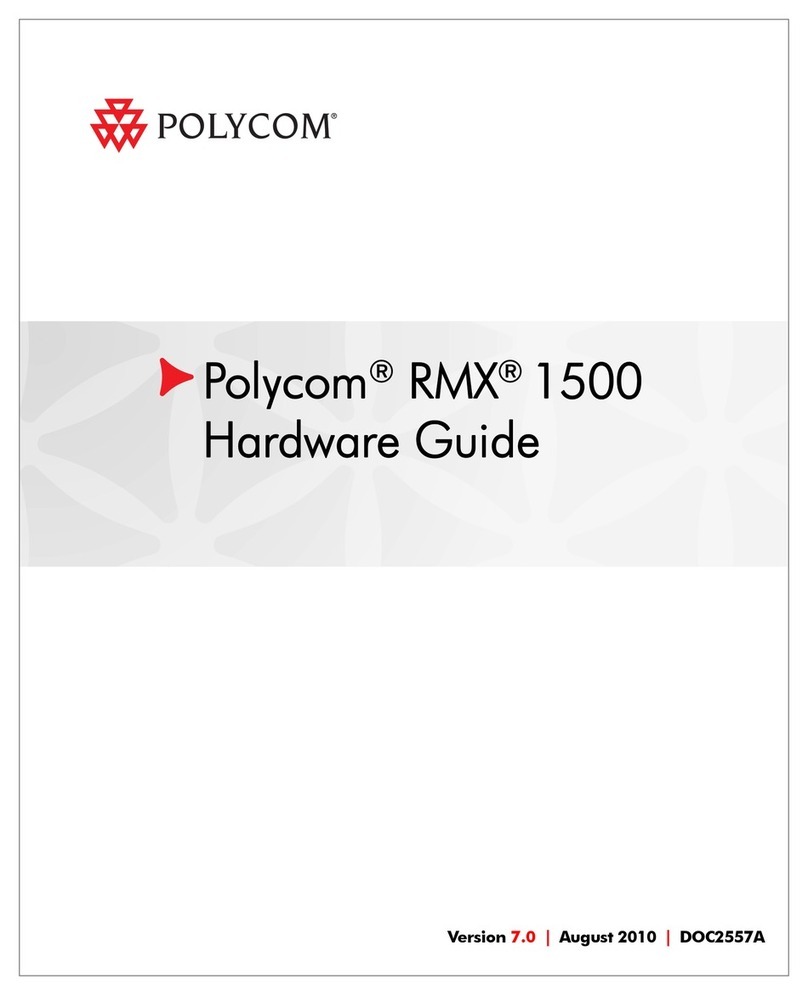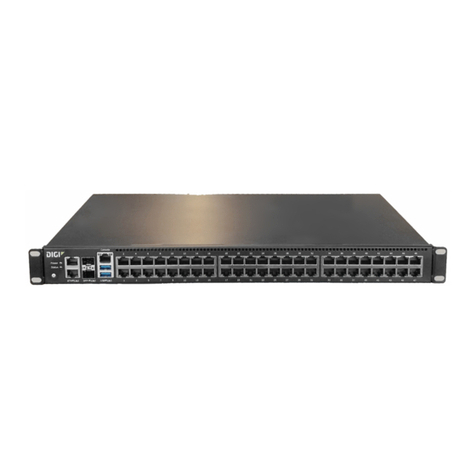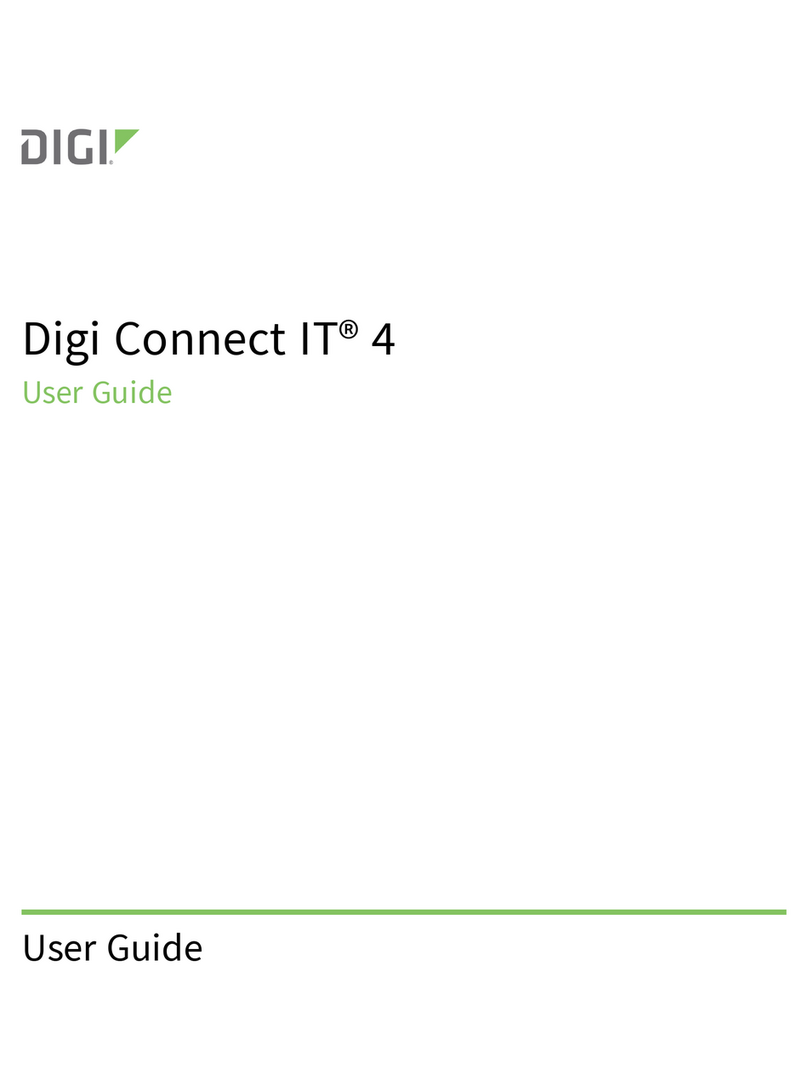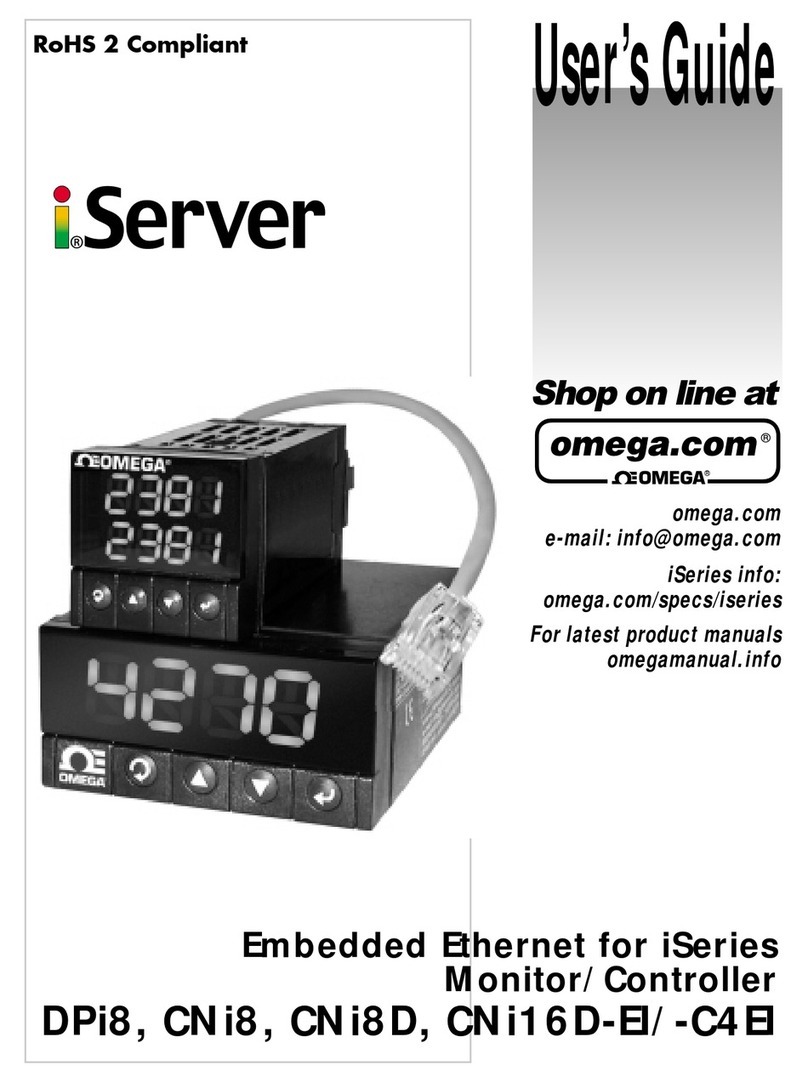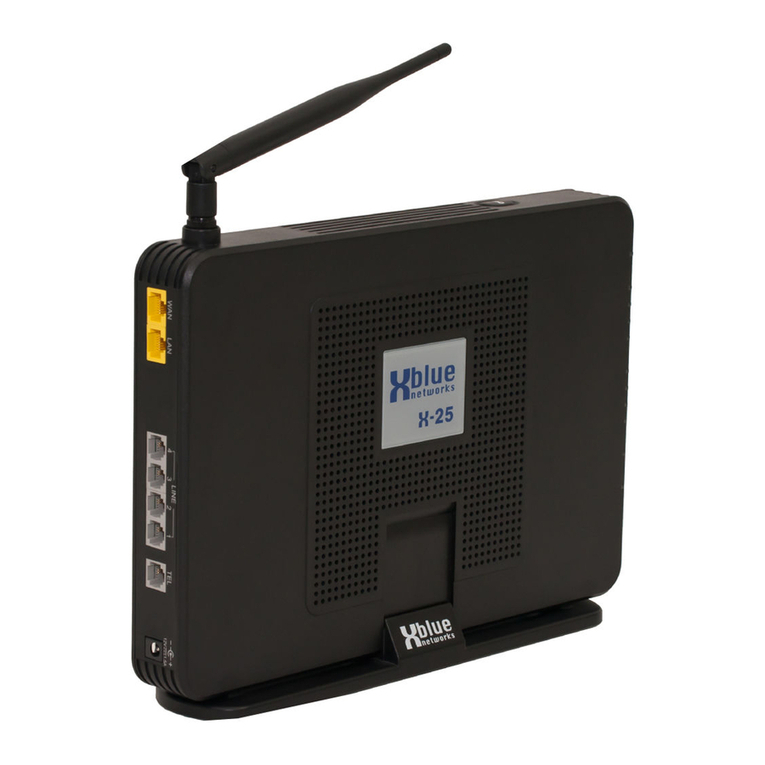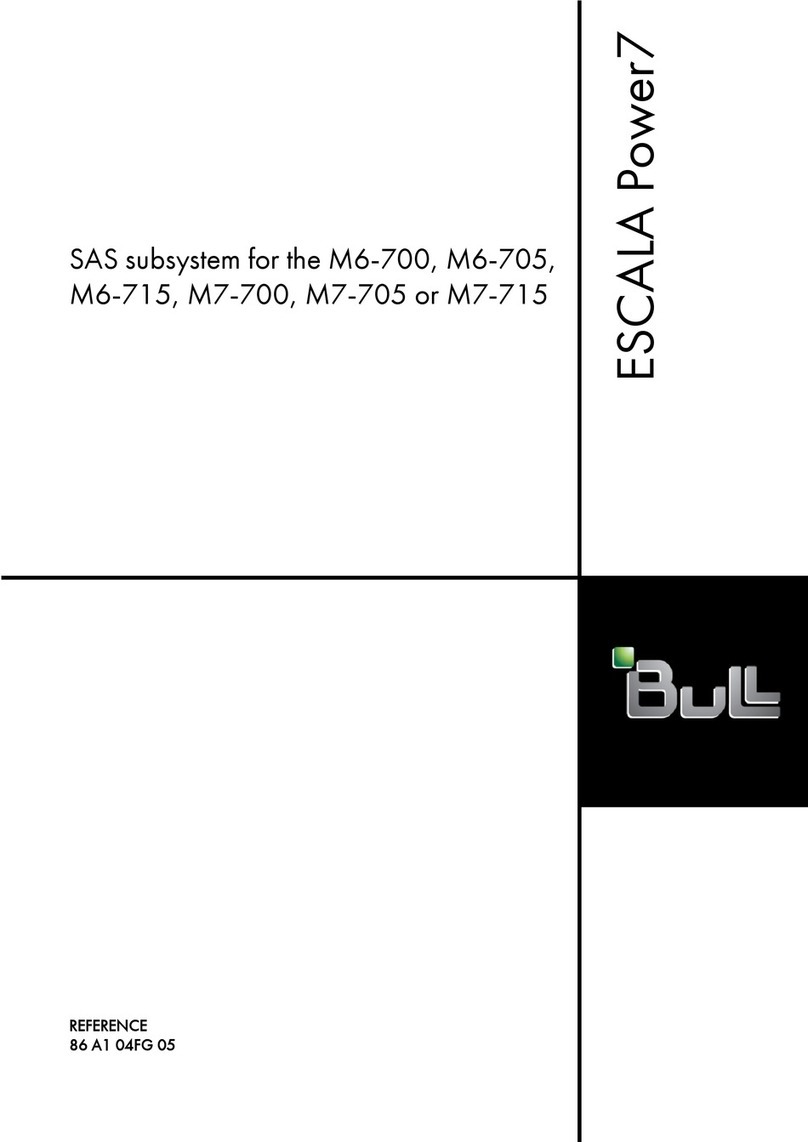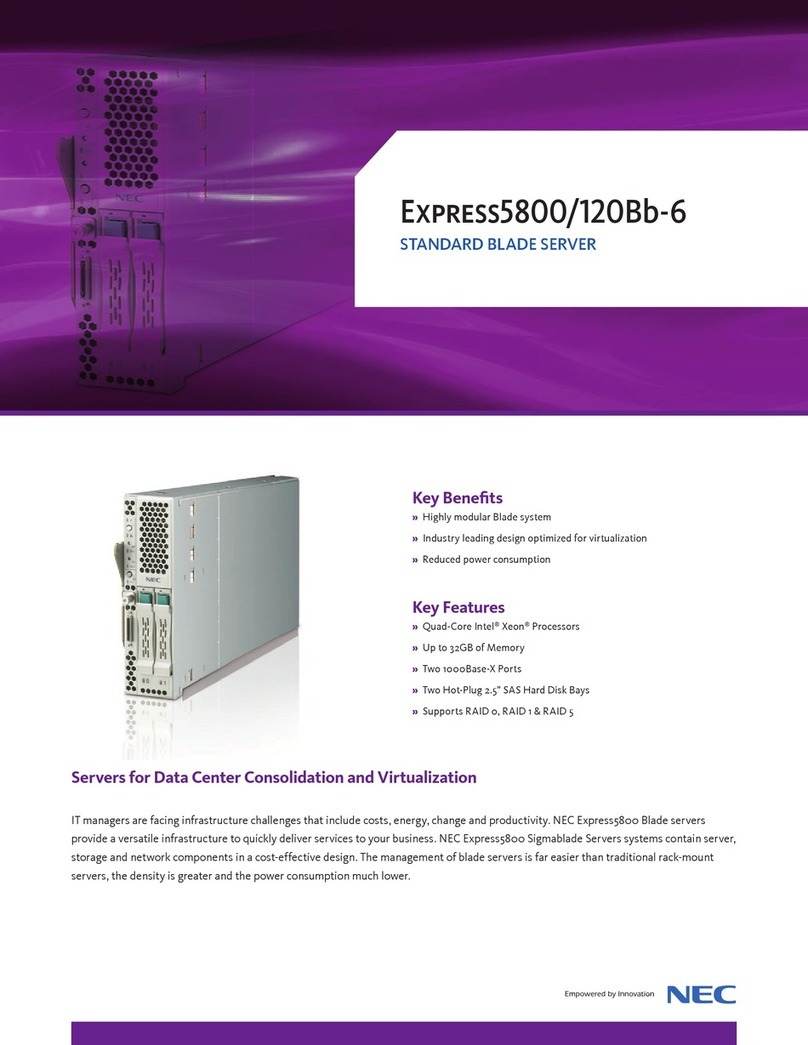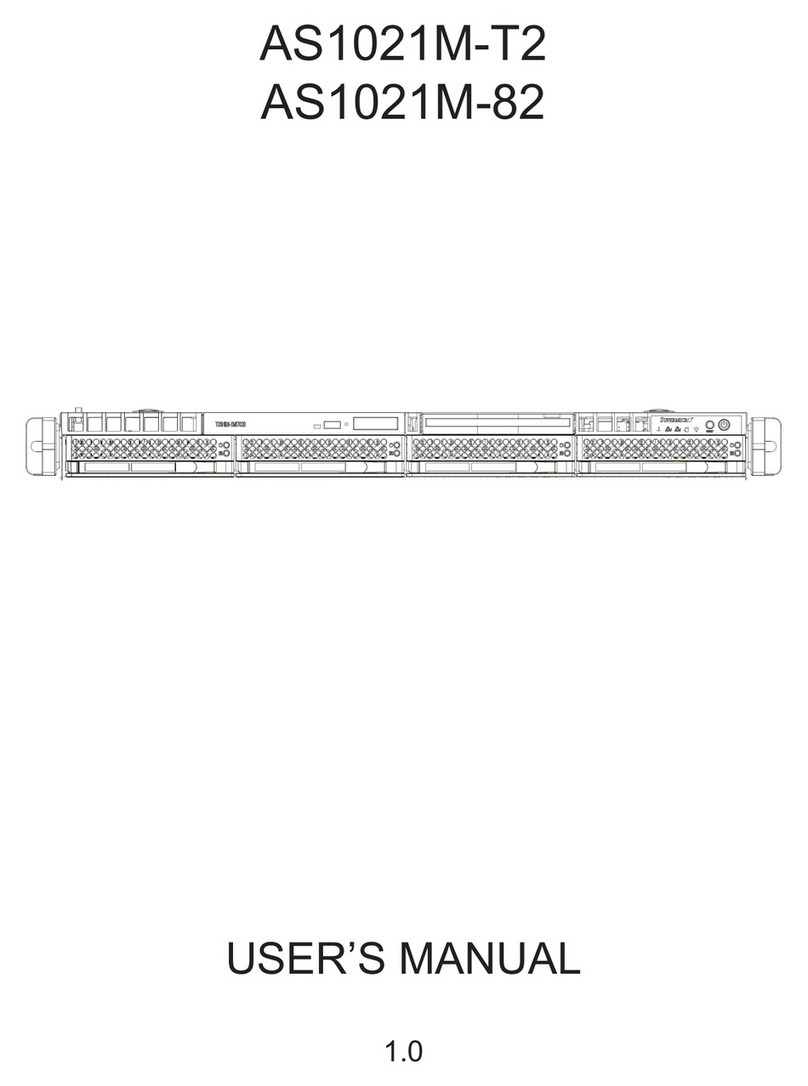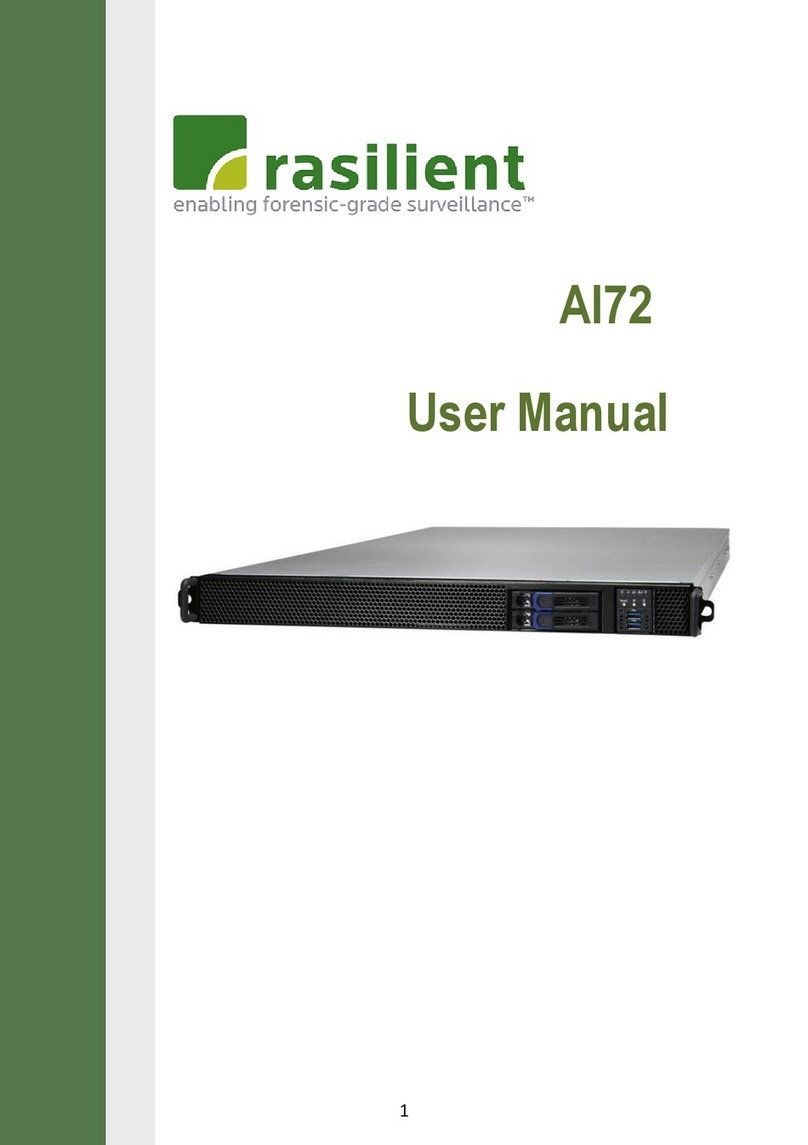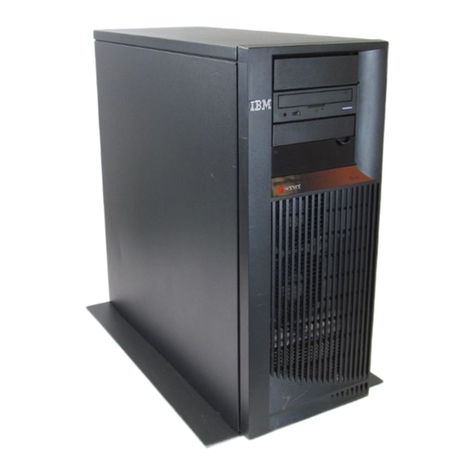Thermolec DCC-11-BOX User manual

1
MODELS MODÈLES
DCC-11-BOX
V3
IFRANÇAISI
IENGLISHI
Electric Vehicle Energy
Management System (EVEMS)
Contrôleur de charge pour véhicules électriques
GENERATION 3 GÉNÉRATION 3
INSTALLATION MANUAL
MANUEL D’INSTALLATION
MAIN POWER SUPP LY
120/240-208V, Single Phase
150A - 200A
ALIMENTATION PRINCIPALE
120/240-208V, Monophasé
150A - 200A
APPROVED MARKET
North America
MARCHÉ AGRÉÉ
Amérique du Nord
DCC-11-BOX
Manufactured by
Manufacturé par
Read and save these instructions
Lire et garder ces instructions
Designed by
Design par

2

3
TABLE OF CONTENTS
About This Manual 3
Safety Information 4
Specications 5
Characteristics 5
Typical Installation 6
DCC Installation 6
Maintenance 7
Internal Components 7
IENGLISHI ABOUT THIS MANUAL
ERRORS AND INACURACIES
For any inaccuracy or omission, or to forward any general comments or
suggestions concerning the quality of this manual, please send an email
to suppor[email protected].
COPYRIGHTS AND TRADE NAMES
All information’s in this manual are subject to copyright protection and
other intellectual property protection of THERMOLEC LTÉE. / RECHARGE
VÉHICULE ÉLECTRIQUE and its licensors.This installation manual cannot
be modied, reproduced or copied without a prior written authorisation
from THERMOLEC LTÉE. / RECHARGE VÉHICULE ÉLECTRIQUE and
its licensors. Additional information’s are available on request. The
following logos are trade names or trademarks of THERMOLEC LTÉE. /
RECHARGE VÉHICULE ÉLECTRIQUE in the United States and in Canada.
DCC – EVEMS
All other trade names mentioned in this document are the property of
their respective owners and their uses in this manual does not means
a sponsorship or approval of the product. The use of any trade name
shown in this document is strictly forbidden.
In this document, the terms DCC – EVEMS and DCC are equivalent.

4
SAFETY INFORMATION
This document describes important safety instructions which must be
followed during installation, maintenance and application of the DCC –
Electric Vehicle Energy Management System (EVEMS).
Warning
Read all instructions prior using this
product.
Always disconnect the DCC – EVEMS
power supply before any works.
Use only the DCC – EVEMS by following
the technical specications indicated in
this installation manual.
Do not install the DCC – EVEMS nearby
inflammable materials, explosives or
fuels, chemical products and vapors.
Never spray the DCC – EVEMS with
water or any other liquids.
Stop using the DCC – EVEMS
immediately if defective, cracked, broken
or damaged.
Never try to modify, repair or dismantle
the DCC – EVEMS. Please contact the
manufacturer for any malfunction.
Never insert a sharp object inside the
DCC – EVEMS at the risk of causing
damages to the components.
Any improper use of the DCC – EVEMS
could result in serious injuries which
may cause death.
For a vertical installation on a wall, refer
to the information’s on the enclosure for
the choice of mounting position.
Precautions
Any improper use of the DCC – EVEMS
can cause damages and premature
wear of the components, which voids
the warranty.
Operating temperature:-22 °F to 113 °F
( -30 °C to 45 °C )
Storage temperature:-4 °F to 158 °F
( -20 °C to 70 °C ).
The installation of the DCC – EVEMS
must be done in accordance with the
latest local electrical code requirements.
Notes
It is recommended to schedule the
charging of the vehicle during hours of
low electrical consumption to minimize
interruptions to the electric charging
station.
Always check that the DCC – EVEMS is
adequately xed to the wall or ceiling or
in a location to avoid any damages.
Not limited to compatibility with electric
vehicle charging stations, this product
can be installed with resistive loads
of up to 60A and inductive loads of up
to 40A.
It is the installer’s responsibility to
make sure that the electric power
source is adequate for the use of the
DCC – EVEMS.
Do not use any cleaning solvents to
clean the DCC – EVEMS.
Limited warranty
1RECHARGE VÉHICILE ÉLECTRIQUE
warrants the integrated controls
against any defects for a period of
one year from the shipping date. The
warranty is limited to the equipment
and components supplier by
RECHARGE VÉHICULE ÉLECTRIQUE
2In case of incorrect installation,
inappropriate use or repairs done by
unauthorized personnel by RECHARGE
VÉHICULE ÉLECTRIQUE, the warranty
will be automatically void.
3 RECHARGE VÉHICULE ÉLECTRIQUE
undertakes to repair or replace, at
site or at the manufacturing location,
at his option, the defective material
only after an evaluation made by its
representative.
4 RECHARGE VÉHICULE ÉLECTRIQUE
will not be held liable for damages or
delays and will not be required to pay
transport cost of the EVEMS said to
be defective.
5RECHARGE VÉHICULE ÉLECTRIQUE.
shall not be liable for any indirect
damages or delays caused by faulty
workmanship or materials.
No indemnity will be paid for repairs,
replacements or modications without
a prior written consent supplied by
RECHARGE VÉHICULE ÉLECTRIQUE
6Any control device or accessory
supplied with the DCC – EVEMS to be
installed or connected remotely from
the EVEMS will be guaranteed by the
manufacturer only under the special
conditions mentioned in paragraph 5.
7The components supplied for repairs
are guaranteed for the remaining of
the warranty on the original product
or 90 days. The longest period will
prevail.
8All repairs made at the RECHARGE
VÉHICULE ÉLECTRIQUE plant are
guaranteed for 30 days from the date
of repairs.

5
SPECIFICATIONS
DCC-11-BOX is a splitter box specically designed to make a building’s
electrical infrastructures fully ready for electric vehicles at the lowest
possible price.
MODEL MAIN POWER SUPPLY
60A 70A 80A 90A 100A 125A 150A 200A
DCC-11-BOX
Voltage and wiring 240/208V AC single phase:
L1, L2, Neutral, Ground.
Terminals size up to 300 MCM (CU/AL)
Frequency 50 to 60 Hz
Operation temperature -22°F to 113°F (-30°C to 45°C)
Max torque L1, L2, Neutral: 120 in-lbf / Ground: 50 in-lbf
Dimensions*(H" x W" x D") 16" x 16" x 8"
Total weight*20 lb (9,07 kg)
*Approximative and can change without notice. V5
CHARACTERISTICS
CONDITIONS FOR APPLICATION
The DCC-11 is an Energy Management System specially designed to
allow the connection of an EV Charger to be connected to a power source
without affecting load calculation.
INSTALLATIONS TYPES
- Group installation
- Wall installation
- Ceiling installation
MAIN POWER SUPPLY (CB)
The DCC-11-BOX can be powered by a 240/208V AC single phase source,
max 200A. The following options are offered by each DCC model:
MODELS
BREAKER MAIN POWER SUPPLY
EV charger 60A 70A 80A 90A 100A 125A 150A
200A
DCC-11-30A
30A
DCC-11-40A
40A
DCC-11-50A
50A
DCC-11-60A
60A
Voltage and wiring 240/208V AC single phase:
L1, L2, Neutral, Ground.
Terminals size up to 300 MCM (CU/AL)
Frequency 50 to 60 Hz
Operation temperature -22°F to 113°F (-30°C to 45°C)
Max torque L1, L2, Neutral: 120 in-lbf / Ground: 50 in-lbf
Breaker terminals: 45 in-lbf
Dimensions*(H" x W" x D") 16" x 16" x 8"
Total weight*23 lb (10,43 kg)
*Approximative and can change without notice. V5
SEE
DCC-9

6
DCC INSTALLATION
STEP 1: CHECK THE PACKAGE CONTENTS
1 x DCC-11-BOX 1 x Ceiling
mounting support 1 x Installation
manual
STEP 2: PREPARATIONS FOR INSTALLATION
1. Disconnect the main power
2. Select the DCC intended location.
- The DCC can be mounted on a ceiling or on a wall.
NOTE: The DCC controller must be mounted so that the nameplate
remains visible at all times.
Do not install the DCC:
- Outdoor.
- In a location with high level of risk.
- Nearby inflammable materials, explosives or fuels, chemical
products and vapors.
3. Before installation, check the DCC mounting position.
Wall installation
Refer to the information on the
enclosure to insure proper
installation.
Ceiling installation
The installation may be done
in any direction.
INSTALLATION VIDEO
To access our installation video, visit our website
www.rve-usa.com/products/dcc-box/
TYPICAL INSTALLATION
DCC-11 with
METER STACK
DCC-11 with
MAIN DISCONNECT
DCC-11 with
SUB PANEL
FOR HOMES FOR CONDOS
DCC-11
Meter Stack
Main Breaker
Panel of the Unit
EV Charger
DCC-11
Main Disconnect
Panel
Electrical
Meter
EV Charger
DCC-11
Sub Panel
Main Panel
Electrical
Meter
EV Charger

7
STEP 5: SECURE AND ENERGIZE
1. Secure: Put the cover back.
2. Energize: Supply electrical power to the DCC.
STEP 6: IDENTIFICATION
1. Register all the information of the charging station owner
(address and parking space) in the space provided on the cover.
2. Register all configuration settings of the main power supply
(essential load) in the space provided on the cover.
MAINTENANCE
Do not use any cleaning solvents to clean the DCC.
INTERNAL COMPONENTS
WARNING
Warranty automatically void if the DCC is installed incorrectly.
STEP 3: INSTALLATION
Ceiling installation
1. Remove the 4 cover screws.
2. Fix the ceiling mounting support on the DCC.
3. Lift the DCC using the ceiling mounting support.
4. Position the DCC at the intended location.
5. Fix the DCC with the anchors for the type of surface.
6. Check that the DCC is adequately xed to the wall or ceiling.
7. Remove the ceiling mounting support.
Wall installation
1. Remove the 4 cover screws.
2. Position the DCC at the intended location.
3. Ensure that the mounting is according with the information’s
on the enclosure.
4. Fix the DCC with the anchors provided for the type of surface.
5. Check that the DCC is adequately xed to the wall or ceiling.
STEP 4: CONDUCTOR CONNEXIONS
See label within the box.
Bracket for
DCC-11-PCB-XXA
mounting
White terminal block for future
supply of the DCC-11-PCB-XXA
Splitter Box
120/240-208V (Max125A)
Main Power Lugs
Main Load Lugs
Neutral Lugs


9
TABLE DES MATIÈRES
À propos de ce manuel 9
Information de sécurité 10
Spécifications 11
Caractéristiques 11
Exemples d’installation 12
Installation du DCC 12
Maintenance 13
Composantes internes 13
FRANÇAIS À PROPOS DE CE MANUEL
ERREURS ET MANQUE DE PRÉCISION
Pour communiquer toute inexactitude ou omission, ou an de fournir
des commentaires généraux ou des suggestions quant à la qualité de
DROITS D’AUTEUR ET MARQUES DE COMMERCE
Toutes les informations contenues dans ce document sont soumises
aux droits d’auteur et aux autres droits de propriété intellectuelle de
THERMOLEC LTÉE. / RECHARGE VÉHICULE ÉLECTRIQUE et ses
concédants de licence. Ce manuel d’installation ne peut pas être
modié, reproduit ou copié, en tout ou en partie, sans l’autorisation écrite
préalable de THERMOLEC LTÉE. / RECHARGE VÉHICULE ÉLECTRIQUE
et ses concédants de licence. Des informations supplémentaires sont
disponibles sur demande. Les éléments suivants sont des marques
commerciales ou des marques déposées de THERMOLEC LTÉE. /
RECHARGE VÉHICULE ÉLECTRIQUE aux États-Unis et au Canada :
Le DCC - Contrôleur de charge pour véhicules électriques
Toutes les autres marques contenues dans ce document sont la propriété
de leurs propriétaires respectifs et leur utilisation ici ne signie pas le
parrainage ou l’approbation de leurs produits ou services. L’utilisation non
autorisée de toute marque achée dans ce document est strictement
interdite.
Dans ce document, les termes DCC - Contrôleur de charge pour véhicules
électriques et DCC sont équivalents.

10
Attention
Lire toutes les instructions avant
d’utiliser ce produit.
Toujours couper l’alimentation
principale du DCC - Contrôleur de charge
pour véhicules électriques avant toute
manipulation.
Utiliser le DCC - Contrôleur de charge
pour véhicules électriques uniquement
en respectant les spécifications
techniques indiquées dans le présent
manuel d’installation.
Ne pas installer le DCC - Contrôleur de
charge pour véhicules électriques à
proximité de matériaux inammables,
explosifs ou combustibles, produits
chimiques, et des vapeurs.
Ne jamais asperger le DCC - Contrôleur
de charge pour véhicules électriques
d’eau ou de toutes autres liquides.
Arrêtez d’utiliser immédiatement le DCC
- Contrôleur de charge pour véhicules
électriques s’il est défectueux, craqué,
brisé ou endommagé.
Ne jamais essayer de modier, de réparer
ou de désassembler le DCC - Contrôleur
de charge pour véhicules électriques.
Veuillez contacter le manufacturier pour
toutes défectuosités.
Ne jamais insérer d’objet coupant à
l’intérieur du DCC - Contrôleur de charge
pour véhicules électriques sous risque
d’endommager les composantes.
Un usage inapproprié du DCC - Contrôleur
de charge pour véhicules électriques
peut entraîner des risques de blessures
graves pouvant causer la mort.
Pour une installation verticale sur un
mur, vous référer aux indications sur le
boitier pour le choix de l’orientation.
Précautions
Un usage inapproprié du DCC -
Contrôleur de charge pour véhicules
électriques peut entraîner le bris et
l’usure prématurée des composantes,
ce qui annule toute garantie.
Température d'opération : -22 °F à 113 °F
( -30 °C à 45 °C )
Température d'entreposage : -4 °F à 158 °F
( -20 °C à -70 °C )
Procéder à l’installation du DCC -
Contrôleur de charge pour véhicules
électriques en respectant le code
électrique local en vigueur.
Notes
Il est préférable de programmer la
recharge du véhicule électrique durant
les heures de faible consommation
d’électricité afin de minimiser les
interruptions de la borne de recharge
du véhicule électrique.
Toujours vérier que le DCC - Contrôleur
de charge pour véhicules électriques est
xé adéquatement au mur ou au plafond
et qu’il est situé dans un endroit où
il n’est pas à risque d’être endommagé.
Bien que ce produit ait été conçu
pour être opéré avec des bornes de
recharge pour véhicules électriques, il
peut être installé avec d'autres charges
résistivesallant jusqu'à 60A, ou d'autres
charges inductives allant jusqu'à 40A.
Il est de la responsabilité de l’installateur
de s’assurer que la source d’alimentation
électrique soit susante pour permettre
l’utilisation d’un ou de plusieurs DCC-
Contrôleur de charge pour véhicules
électriques.
Ne pas utiliser de solvants de nettoyage
pour nettoyer le DCC - Contrôleur de
charge pour véhicules électriques.
Garantie Limitée
1RECHARGE VÉHICULE ÉLECTRIQUE
garantit contre tout défaut sur
les contrôles intégrés pour un an
à partir de la date de livraison.
La garantie est limitée à l’équipement
et aux composants fournis par
RECHARGE VÉHICULE ÉLECTRIQUE.
2En cas d’installation non conforme,
de mauvais usage ou de réparation
par du personnel non autorisé par
RECHARGE VÉHICULE ÉLECTRIQUE, la
garantie s’annule automatiquement.
3 RECHARGE VÉHICULE ÉLECTRIQUE
s’engage à réparer ou à remplacer,
au chantier ou à son usine selon
son choix, la marchandise qui à
l’examen fait par son représentant se
seraavérée défectueuse.
4 RECHARGE VÉHICULE ÉLECTRIQUE
ne sera pas tenue responsable de
dommages ou délais et ne sera pas
tenue de payer des frais occasionnés
par le déplacement du contrôleur de
charge dit défectueux.
5RECHARGE VÉHICULE ÉLECTRIQUE
ne devra pas être tenue responsable
des dommages indirects ou des
délais occasionnés par un défaut
de main-d’œuvre ou de matériel.
Aucune indemnité ne sera accordée
pour réparations, remplacements
ou modications si une autorisation
écrite préalable n’a pas été fournie par
RECHARGE VÉHICULE ÉLECTRIQUE.
6Tout dispositif de commande ou
accessoire fourni avec le DCC -
Contrôleur de charge pour véhicules
électriques pour être monté ou
raccordé à distance du contrôleur de
charge sera garanti par le fabricant
seulement sous réserve des
conditions précitées au paragraphe 5.
7Les composants fournis pour des
réparations sont garantis pour la
balance de la durée de la garantie sur
le produit original ou 90 jours. La plus
longue des deux durées sera retenue.
8Toutes réparations complétées
à l’usine RECHARGE VÉHICULE
ÉLECTRIQUE après la période de
garantie sont garanties pour 30 jours
à partir de la date de réparation.
INFORMATION DE SÉCURITÉ
Ce document contient des instructions importantes de sécurité qui
doivent être suivies durant l’installation, la maintenance et l’utilisation
du DCC - Contrôleur de charge pour véhicules électriques.

11
SPÉCIFICATIONS
Le DCC-11-BOX est un boîtier de répartition spécialement conçu pour
préparer un immeuble à l’arrivée des véhicules électriques dans un
contexte multirésidentiel.
MODÈLE ALIMENTATION PRINCIPALE
60A 70A 80A 90A 100A 125A 150A 200A
DCC-11-BOX
Tension et câblage 240/208V CA monophasé :
L1, L2, Neutre, Mise à la terre.
Dimension des borniers jusqu’à 300 MCM (CU/AL)
Fréquence 50 à 60 Hz
Température d’opération -22°F à 113°F (-30°C à 45°C)
Couple maximal L1, L2, Neutre : 120 in-lbf / M.A.L.T. : 50 in-lbf
Dimensions*(H" x L" x P") 16" x 16" x 8"
Poids total*20 lb (9,07 kg)
*Approximatif, peut changer sans préavis. V5
CARACTÉRISTIQUES
CONDITIONS D’APPLICATIONS
Le DCC-11 - Contrôleur de charge pour véhicules électriques est
spécialement conçu pour permettre de connecter une borne de recharge
en contexte de condo et d’immeuble multi-résidentiels à l’alimentation
principale d’un condo.
TYPES D’INSTALLATIONS
- Installation groupée
- Installation au mur
- Installation au plafond
ALIMENTATION PRINCIPALE (CB)
Le DCC-11-BOX peut-être alimenté par une distribution électrique
monophasée 240/208V CA, max 200A. Voici les possibilités qu’offre
chaque modèle de DCC:
MODÈLES
DISJONCTEUR ALIMENTATION PRINCIPALE
Borne de recharge 60A 70A 80A 90A 100A 125A 150A 200A
DCC-11-30A
30A
DCC-11-40A
40A
DCC-11-50A
50A
DCC-11-60A
60A
Tension et câblage 240/208V CA monophasé :
L1, L2, Neutre, Mise à la terre.
Dimension des borniers jusqu’à 300 MCM (CU/AL)
Fréquence 50 à 60 Hz
Température d’opération -22°F à 113°F (-30°C à 45°C)
Couple maximal L1, L2, Neutre : 120 in-lbf / M.A.L.T. : 50 in-lbf
Borniers disjoncteur : 45 in-lbf
Dimensions*(H" x L" x P") 16" x 16" x 8"
Poids total*23 lb (10,43 kg)
*Approximatif, peut changer sans préavis. V5
VOIR
DCC-9

12
INSTALLATION DU DCC
ÉTAPE 1 : VÉRIFIER LE CONTENU DE LA BOÎTE
1 x DCC-11-BOX 1 x Support
d’installation
pour le plafond
1 x manuel
d'installation
ÉTAPE 2 : PRÉPARATION À L’INSTALLATION
1. Couper l’alimentation principale
2. Choisir l’emplacement du DCC
- Le DCC peut s’installer sur un plafond ou sur un mur
NOTE: Le contrôleur DCC doit être installé de sorte que la plaque
signalétique soit visible en tout temps.
Ne pas installer le DCC:
- À l’extérieur
- Dans un endroit où il serait à risque d’être endommagé
- À proximité de matériaux inammables, explosifs ou combustibles,
produits chimiques, et des vapeurs.
3. Vérier l’orientation du DCC pour l’installation
VIDÉO D’INSTALLATION
Pour visionner notre vidéo d’installation, visitez le
www.rve.ca/fr/produits/dcc-box/
EXEMPLES D’INSTALLATION
DCC-11 avec
COLONNE DE
COMPTEURS
POUR MAISONS POUR CONDOS
DCC-11 avec
INTERRUPTEUR
PRINCIPAL
DCC-11 avec
SOUS PANNEAU
DCC-11
Colonne de
compteurs
Disjoncteur
principal
Borne de recharge
Panneau
électrique
du condo
DCC-11
Disjoncteur
principal
Panneau
Compteur
électrique
Borne de recharge
DCC-11
Sous
panneau
Panneau
principal
Compteur
électrique
Borne de recharge

13
ÉTAPE 5 : SÉCURISER ET ALIMENTER
1. Sécuriser: Remettre le couvercle.
2. Alimenter: Alimenter le DCC en électricité.
ÉTAPE 6 : IDENTIFICATION
1. Inscrire les informations du propriétaire de la borne de recharge
(adresse et stationnement).
2. Inscrire les paramètres de conguration de l’entrée électrique (charge
essentielle) sur le couvercle à l’endroit prévu à cet effet.
MAINTENANCE
Ne pas utiliser de solvants de nettoyage pour nettoyer le DCC.
COMPOSANTES INTERNES
Installation au mur
Référez-vous aux indication
sur le boitier an d’assurer que
l’orientation de l’installation soit
conforme.
Installation au plafond
L’installation peut être faite
dans toutes les orientations.
ATTENTION
Garantie automatiquement annulée si
l’installation du DCC est non conforme.
ÉTAPE 3 : INSTALLATION
Installation au plafond
1. Enlever les 4 vis du couvercle.
2. Fixer le support d’installation pour le plafond sur le DCC.
3. Soulever le DCC à l’aide du support d’installation pour le plafond.
4. Positionner le DCC à l’endroit désiré.
5. Fixer le DCC avec des ancrages prévus pour le type de revêtement.
6. Vérier que le DCC est xé adéquatement au mur ou au plafond.
7. Défaire le support d’installation pour le plafond.
Installation au mur
1. Enlever les 4 vis du couvercle.
2. Positionner le DCC à l’endroit désiré.
3. S’assurer que l’orientation soit conforme aux indications sur le boitier.
4. Fixer le DCC avec des ancrages prévus pour le type de revêtement.
5. Vérier que le DCC est xé adéquatement au mur ou au plafond.
ÉTAPE 4 : BRANCHEMENT DES CONDUCTEURS
Se référer aux indications à l’intérieur du boitier.
Support de montage
pour DCC-11-PCB-XXA
Bornier de connexion blanc pour
alimentation future du DCC-11-PCB-XXA
Boîtier de répartition
120/240-208V (Max125A)
Borniers de
l’alimentation
principale
Borniers de
l’alimentation du
panneau
Borniers de neutre

Other manuals for DCC-11-BOX
1
Table of contents
Languages:
Other Thermolec Server manuals
